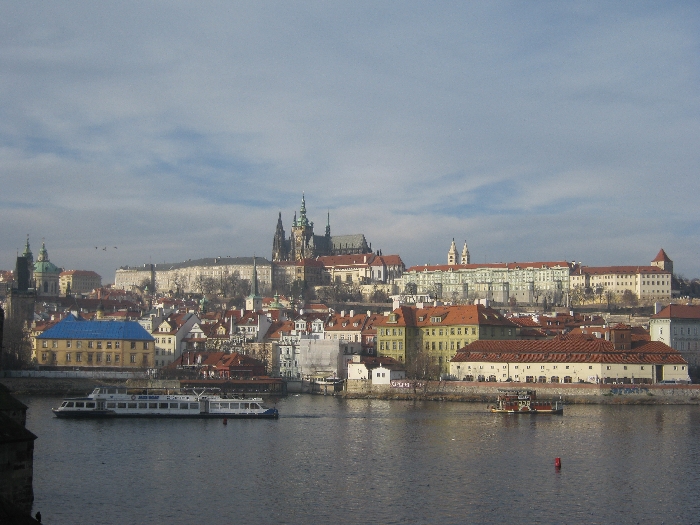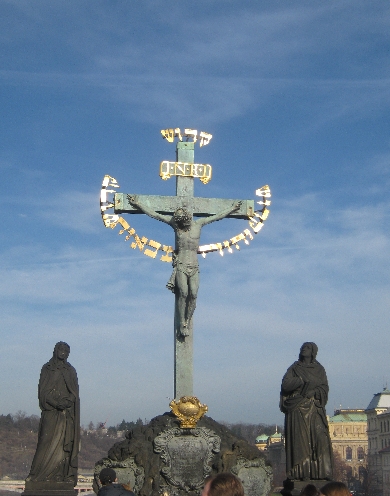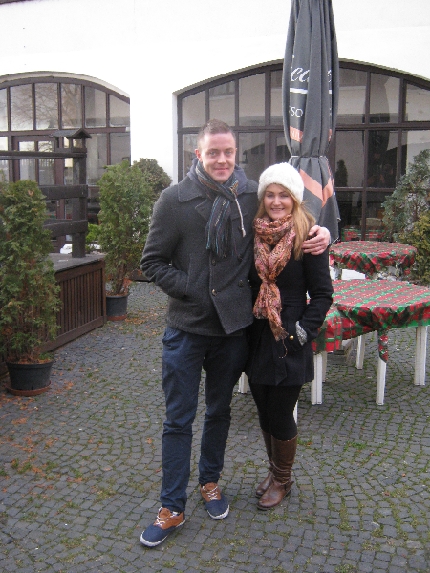
I had originally planned to write a blog post on this topic back in November 2014, immediately following the ‘Struggle for Freedom and Democracy Day’ public holiday on Monday 17th November, which officially marked the twenty-fifth anniversary of the beginning of the Velvet Revolution on 17th November 1989. But rather than write an immediate reaction, I eventually decided that it was better to wait somewhat longer and give myself a little more time for both research and for reflection.
For although the events of 17th November 1989 were what initially triggered the Velvet Revolution, it took several weeks before on 29th December 1989, the previously Communist Party controlled rubber stamp Czechoslovak parliament, voted dissident playwright Václav Havel, to be the new President of Czechoslovakia with the promise of holding truly democratic parliamentary elections in the following year.
Therefore over the past two months, not only has the twenty-fifth anniversary of the beginning of the Velvet Revolution been commemorated, but also the twenty-fifth anniversary of Havel’s election as President, and in-between on 18th December, the third anniversary of the death of Václav Havel on 18th December 2011.

With all these anniversaries, there has been an outpouring of appreciation for the late Václav Havel, well-illustrated by the large poster displayed on the front of the National Museum overlooking the top end of Václavské námestí / Wenceslas Square, and by this placard that I photographed on Struggle for Freedom and Democracy Day. Much has been written in praise of his role in leading the dissident movement and bringing about a peaceful end to the Communist regime. Then as to how well as President, he represented the nation of Czechoslovakia 1989-1992; the Czech Republic 1993-2003.
The way Havel represented the nation, has been sharply contrasted with the behaviour of the current President, Miloš Zeman. Despite receiving just under 55% of the total vote in the presidential election held only two years ago, his level of support and popularity has since dropped considerably. In recent times, he has made statements questioning the economic sanctions being imposed on Russia for its military activity in Ukraine. He gave a live radio interview on Czech Radio in which he used foul language. Then in the days just before the Velvet Revolution anniversary, he tried to downplay the level of violence used by the riot police against the student demonstrators in 1989.
As a consequence, one of the major events on 17th November, was a protest march to Prague Castle with the demonstrators waving red cards, calling for President Zeman to be ‘sent off!’ It should be noted that this demonstration took place in Prague where Zeman did not gain a majority of the votes cast in the 2013 presidential election. But even many of those who voted for him are now expressing considerable disappointment with his words and actions and his complete unwillingness to apologise for them. A majority of the population now see him as an embarrassment for the Czech nation, in stark contrast to the late President Havel.
With these anniversaries, many people have been looking back and reflecting on how much has changed here in the Czech Republic, from the situation that existed twenty-five years ago. One very obvious change is that the demonstration against the current President took place without being attacked by riot police! Expressing an opinion that differs from those in authority is now possible.
I have often read that Czech people always talk quietly, can be unfriendly towards foreigners and are difficult to get to know. The experience of myself and Sybille over the past six-plus years is that this generalisation is far from the truth. Where it may apply to some extent, is amongst older Czech people who experienced living under the Communist regime. You spoke quietly because you didn’t know who was listening. You didn’t make friends easily because you were never sure who was an informer. And for most of that generation, the only language they have is Czech, together with the Russian they were forced to learn and which most have since done their utmost to forget 🙂
However the reality now is, that every Czech aged thirty or under, has no recollection or personal experience of living under a Communist regime. Therefore a group of young Czechs together are likely to talk somewhat loudly, especially if they are enjoying a few beers at the same time! They also easily make friends with each other and are often friendly towards foreigners. This is helped by most educated younger Czechs being able to speak English and many of them being very keen to practice their English language skills.
All of this was clearly brought home to me once again last week and is what has prompted me to finally compile this blog post. Last Monday, Sybille and I visited Bar- Restaurant U Topolu, a favourite of ours as it is with many of the students from the nearby technical university. With no table being free, we asked three young ladies if we could share the free end of their table. Upon hearing us speaking to each other in English, they spoke to us in English. Having discovered that we were not tourists but lived here, they were more than happy to converse with us.
All three were in their final year at the technical university, studying architecture. They were out celebrating together, having each completed an important assignment which they had handed in that day. Judging by the number of ‘blades of grass’ * they would eventually need to cut, they had been celebrating for some time 🙂
They spoke freely about themselves, where they were from and what their aspirations were. They were keen to know about us, where we were from and whether we liked living here. When we said that our only real complaint is our difficulties with the Czech language, Lenka, (the most talkative of the three), admitted that even she struggled sometimes with getting her Czech right! This rather confirmed the complaint I’ve heard from a few older Czech people, that many younger Czechs don’t always speak their own language correctly.
These three young ladies are part of the new post-Velvet Revolution generation making the most of the educational and other opportunities that they now have and also knowing how to enjoy themselves at the same time. Open and friendly towards each other and even with English-speaking foreigners living among them.
* See this previous post and the comment on it by Sean.



